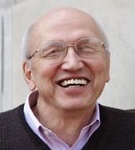
R. Brockett
Roger Brockett received the B.S., M.S., and Ph.D. degrees from Case Western Reserve University, Cleveland, OH, in 1960, 1962, and 1964, respectively. He is the An Wang Professor of Electrical Engineering and Computer Science in the Division of Applied Science at Harvard University, Cambridge, MA. He taught for six years in the Electrical Engineering Department at the Massachusetts Institute of Technology, Cambridge, before joining the Harvard Faculty in 1969.
He has contributed extensively to the theory of automatic control with work on stability, nonlinear control, feedback linearization, system identification, nonlinear estimation, pole placement, hybrid systems, and robotics. More recently, his work has involved problems arising in the study of intelligent machines. Areas of particular interest include the problem of motion control, and the investigation of new paradigms involving the concept of attention in high-data rate, sensory-rich environments.
Dr. Brockett has been recognized by the American Automatic Control Council and the IEEE through their Richard Bellman Award and the Control System Science and Engineering Award. He has received the Reid Prize from the Society of Industrial and Applied Mathematics. He has served on a variety of National Research Council Panels and is a Member of the National Academy of Engineering.
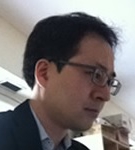
D. E. Chang
Dong Eui Chang received the B.S. degree in control and instrumentation engineering and the M.S. degree in electrical engineering, both from Seoul National University, Seoul, Korea, in 1994 and 1997, respectively, and the Ph.D. degree in control and dynamical systems from the California Institute of Technology, Pasadena, in 2002. He is currently an associate professor with the Department of Applied Mathematics, University of Waterloo, Waterloo, Ontario, Canada. His research interests include control, mechanics, machine learning and various applications.
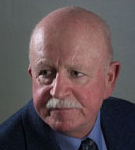
A. J. Krener
Arthur Krener received the PhD in Mathematics from the University of California, Berkeley in 1971 and joined the faculty of the University of California, Davis. He is a mathematician whose research interests are in developing methods for the control and estimation of nonlinear dynamical systems and stochastic processes. He retired from UCD in 2006 as a Distinguished Professor of Mathematics and he currently is a Distinguished Visiting Professor at the Naval Postgraduate School. He has also held visiting positions at Harvard University, Imperial College, NASA Ames Research Center, the University of California, Berkeley, the University of Paris, the University of Maryland, the University of Padua and North Carolina State University. His research has been continuously funded since 1975 by NSF, NASA, AFOSR and ONR.
He is a member of the American Mathematical Association, a Fellow of the Society for Industrial and Applied Mathematics and a Life Fellow of the Institute of Electrical and Electronics Engineers. Krener has held a variety of administrative posts, including Chair of the Department of Mathematics, UC Davis, member of the Committee on Academic Personnel, UC Davis and Chair of the SIAM Activity Group on Control and Systems Theory. He has given numerous invited addresses at professional meetings. He has organized several major conferences including the SIAM Conferences on Control and its Applications in 1989 and 2007 in San Francisco and the IFAC NOLCOS at Lake Tahoe in 1996.
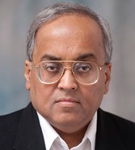
P. S. Krishnaprasad
P. S. Krishnaprasad received his Ph.D. degree from Harvard University in 1977. He was on the faculty of the Systems Engineering Department at Case Western Reserve University from 1977 to 1980. He has been with the University of Maryland since August 1980, where he has held the position of Professor of Electrical Engineering since 1987, and a joint appointment with the Institute for Systems Research since 1988. He is also a member of the Applied Mathematics Faculty.
Krishnaprasad’s interests include geometric control theory, filtering and signal processing theory, robotics, acoustics, and biologically-inspired approaches to control, sensing and computation. He is currently actively engaged in the study of collectives, i.e. communicating, networked control systems. P. S. Krishnaprasad was elected a Fellow of the IEEE in 1990.
Krishnaprasad has held short and long term visiting positions with Erasmus University (Rotterdam); the Department of Mathematics, University of California, Berkeley; the University of Groningen (the Netherlands); the California Institute of Technology; the Mathematical Sciences Institute at Cornell University; and the Mechanical and Aerospace Engineering Department at Princeton University.
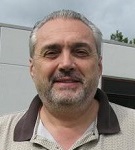
T. Ratiu
Tudor Ratiu received the PhD in Mathematics from the University of California, Berkeley in 1980. He is presently a professor of Mathematics and the chair of geometric analysis at École Polytechnique Fédérale de Lausanne, Switzerland. He has held visiting positions at prestigious research centers such as Max Planck Institute for Mathematics (Germany), Mathematical Sciences Institute at Cornell University, Erwin Schrödinger Institute for Mathematical Physics (Austria), Institute des Hautes Études Scientifiques (France), Isaac Newton Institute for Mathematical Sciences in Cambridge (England).
Tudor Ratiu has worked in integrable systems, symplectic geometry, Hamiltonian dynamics and the bifurcation theory of conservative systems in the presence of symmetry, especially their link to singular reduction and the properties of the momentum map.
His contribution to mathematics was recognized by numerous awards and prizes. Among other honors, he was an A. P. Sloan Foundation Fellow in 1984-1987, a Humbold Prize winner in 1997, and won a Ferran Sunyer and Balaguer Prize for the year 2000.
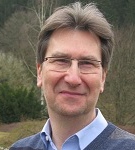
W. Respondek
Witold Respondek received Ph.D. degree from the Institute of Mathematics, Polish Academy of Sciences in 1981. He has held positions at the Technical University of Warsaw and at the Polish Academy of Sciences. Since 1994 he has been at INSA de Rouen, France.
His main research concerns are geometry and singularities of nonlinear control systems and Pfaff equations. He is a co-editor of 6 books and author of several papers devoted to linearization of nonlinear control systems, nonlinear observers, classification of control systems and Pfaff equations, dynamic feedback, high-gain feedback, systems with nonholonomic constraints and, recently, symmetries and bifurcations of nonlinear control systems.
He has held visiting research positions at the University of California, Davis, Twente University, Enschede, the Netherlands, Rome University "Tor Vergata", Rome, Italy, Mittag-Leffler Institute, Stockholm, Sweden. He was an associate editor of Applicationes Mathematicae and SIAM Journal on Control and Optimization, currently he is an associate editor of the Central European Journal of Mathematics.
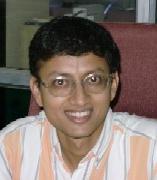
Sanjay P. Bhat
Sanjay P. Bhat was born in Honnavar, India, in 1971. He received the B.Tech. degree in aerospace engineering from the Indian Institute of Technology, Bombay, in 1992, and the M.S. and Ph.D. degrees in aerospace science from the University of Michigan, Ann Arbor, in 1993 and 1997, respectively.
In 1998, he joined the Department of Aerospace engineering, Indian Institute of Technology where he served as an Associate Professor. Presently, he is a Senior Consultant at the Advanced Technology Center of Tata Consultancy Services in Hyderabad, India. His research interests include stability theory, nonlinear systems theory, and dynamics and control .
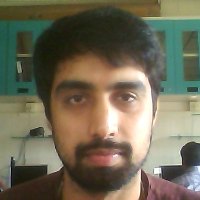
Ramaprakash Bayadi
Ramaprakash Bayadi obtained his B.E. in Mechanical Engineering from University of Mysore in 2001. After a couple of years in the software industry, he obtained his MSc (Engg) degree from the Indian Institute of Science in 2008 from the department of Mechanical Engineering and obtained his PhD from the Systems and Control Engineering department, IIT Bombay in 2013.
Presently he is working with the Flight Mechanics and Control Division of the National Aerospace Laboratories, Bangalore.

M. V. Dhekane
M. V. Dhekane received his B.Tech. in electrical engineering in 1980 and Masters degree in Systems and Control engineering in 1983 respectively, all from the Indian Institute of Technology, Bombay. In 1983, he joined the Vikram Sarabhai Space Centre, ISRO and has more than 30 years of experience in Launch Vehicle Dynamics modeling, Autopilot Design, Simulation and Post flight analysis. In 2007, he was the recepient of the PSLV-team award and also received the ISRO merit award in 2009. He has authored approximately 100 internal technical reports.
Presently, he is the Deputy Director of the Control, Guidance and Simulation Entity of the Vikram Sarabhai Space Centre. He is responsible for supervising teams in the design of Control and Guidance systems for the PSLV, GSLV, RLV and MKIII launch vehicles. In addition, he is also responsible for leading teams to carry out R&D projects in Control and Guidance Design Automation, Auto code development, Guidance strategies for space capsule recovery, interplanetary missions and parameter identification through post flight analysis.
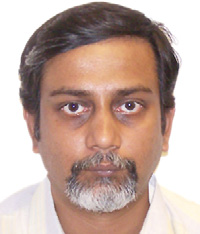
Harish K. Pillai
Harish K. Pillai obtained his B.Tech in Electrical Engg. from IIT Kharagpur in 1990, and his M.Tech and Ph.D degrees from IIT Bombay in 1993 and 1997 respectively. After spending about four years in Europe: first at University of Groningen, the Netherlands and then at the University of Southampton, UK, he joined IIT Bombay, Mumbai, India in 2001. He is currently a Professor in the Department of Electrical Engg. at IIT Bombay. His research interests include control theory, numerical linear algebra, combinatorial optimisation, algorithms, coding theory and electromagnetics.

Amitabh Saraf
Amitabh Saraf completed his B Tech from IITBombay in 1990 in Mechanical Engineering and MTech from IIT Bombay in 1992 in Systems and Control Engineering. He completed his PhD in 2000 from IISc Bangalore in Aerospace Engineering and was postdoctoral fellow at University of California, Irvine from 2001 to 2003. He is a member of National Control Law team for Indian Light Combat Aircraft right from its inception in 1992. He has over 20 years of experience in various disciplines like design of flight control laws for fighter aircraft, design of airdata systems, systems simulation, flight test planning, parameter identification, validation and update of aerodynamic databases using flight data etc. He is also the lead designer of flight control laws of the naval variant of LCA for the challenging task of ski-jump take off and landing on a ship deck. His research interests include high angle of attack flight dynamics, nonlinear systems design and atmospheric entry guidance of reusable launch vehicles. He has won several awards in his career including DRDO Agni Award for excellence in self-reliance, Swarnajayanti Award by Aeronautical Society of India, Best theses awards in aerospace and mechanical sciences by Indian Institute of Science etc.